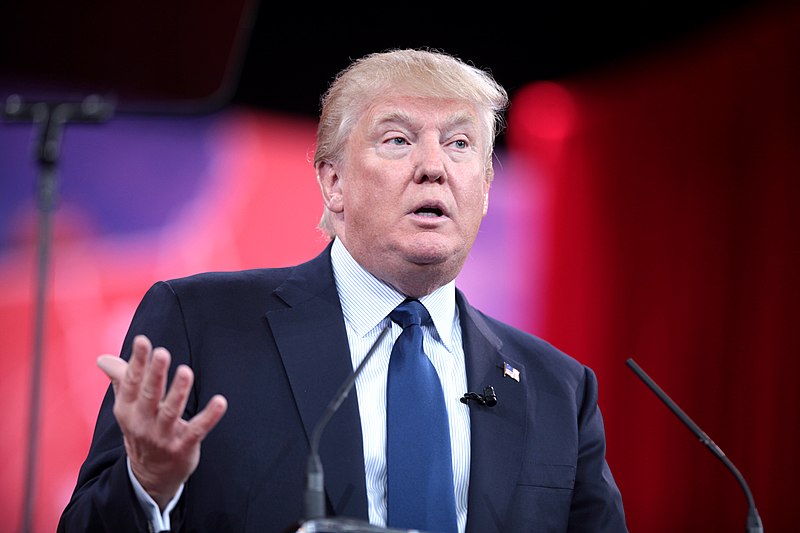
Markets tumbled today as former U.S. President Donald Trump escalated his trade war, extending tariffs beyond Mexico, Canada, and China to target the European Union (EU).
The announcement fueled concerns of a global economic downturn, sending stock indices across the world into a tailspin.
The FTSE 100 dropped over 100 points in early trading, with Germany’s DAX and France’s CAC 40 suffering even steeper losses. Asian markets also experienced sharp declines, with Japan’s Nikkei falling by 2.7% and Hong Kong’s Hang Seng down 1%.
Trump’s criticism of the EU and potential UK tariff relief
In a statement, Trump branded the U.S. trade deficit with the EU as “an atrocity” and confirmed that tariffs would “definitely” be imposed on EU goods. However, he offered a potential reprieve for the UK, suggesting that while Britain was “out of line,” the issue could be resolved through negotiations with Prime Minister Keir Starmer.
“We’ve had a couple of meetings and numerous phone calls,” Trump stated. “We’re getting along very well.”
Despite this, the uncertainty surrounding the UK’s trade relations with the U.S. contributed to market volatility. The British pound weakened against the U.S. dollar, dropping 0.6% to $1.23, although it gained 0.5% against the euro.
Keir Starmer’s balancing act between the U.S. and EU
Trump’s aggressive trade policies place Prime Minister Keir Starmer in a challenging position as he seeks to strengthen ties with both the EU and the U.S. during a visit to Brussels. The trip aims to reinforce UK-EU relations, particularly in trade and security cooperation.
“We need strong trading relations,” Starmer stated when asked about Trump’s tariff threats. “That has been the focus of our discussions with the U.S.”
Meanwhile, EU officials are reportedly preparing countermeasures against the new U.S. tariffs, raising the prospect of a broader trade conflict.
Market impact and industry fallout
The financial repercussions of Trump’s trade war were immediate. European car manufacturers bore the brunt of the losses, with shares in Volkswagen, Mercedes-Benz, BMW, Daimler Truck, and Porsche declining by around 5% in early trading. Luxury car manufacturer Aston Martin also suffered, shedding 4% of its value.
The auto industry faces particular risk, as U.S. tariffs could significantly impact European car exports. Other major sectors affected include pharmaceuticals and machinery, which represent key European exports to the U.S.
Starmer’s diplomatic mission in Brussels
As Starmer meets EU leaders in Brussels, his agenda includes discussions on supporting Ukraine and reinforcing sanctions against Russia. The Prime Minister is expected to urge European nations to increase their financial assistance to Ukraine and align with U.S.-UK efforts to impose further economic restrictions on Russia.
Starmer will also meet NATO Secretary-General Mark Rutte at the alliance’s headquarters, where topics may include Trump's controversial foreign policy stances, including past remarks about annexing Greenland and making Canada the 51st U.S. state.
Brexit and political implications
Domestically, Starmer faces mounting pressure from the Conservative opposition, which has outlined five key Brexit-related “tests” for his leadership. These include maintaining the UK’s ability to negotiate independent trade deals and retaining full control of its borders.
The unfolding trade war adds further complexity to the UK’s post-Brexit positioning. While Trump’s overtures to the UK offer some hope, the broader economic impact of his policies could force Starmer into difficult trade-offs between maintaining strong EU ties and securing a favorable trade deal with Washington.
As global markets react to Trump’s latest tariff measures, investors and political leaders alike are bracing for further economic turbulence. Photo by Gage Skidmore from Peoria, AZ, United States of America, Wikimedia commons.








































